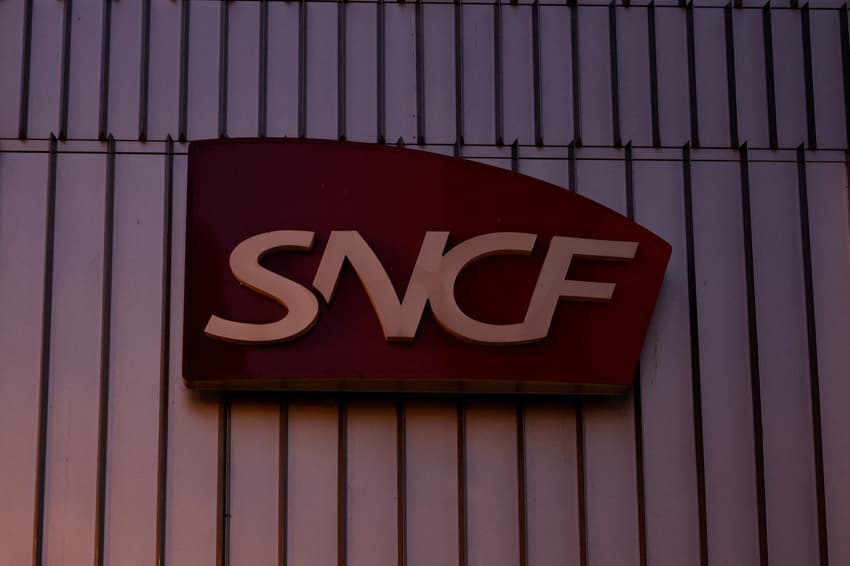French rail firm accused as high-speed train crash deaths reach court

The deaths of 11 people in a high-speed train accident in 2015 finally came to trial Monday, with French state rail operator SNCF and staff including the train driver in the dock.
Dozens of SNCF staff and members of their families were on a TGV train that derailed that year, as it took a curve at 265 kilometres per hour - far above the permitted 176kph.
As the final test run on a new high-speed line, the trip on November 14th, 2015 had been intended as a festive occasion.
Instead, the train fell into a canal linking the Marne and Rhine rivers at Eckwersheim, near Strasbourg in eastern France.
Out of 53 people aboard, the crash killed 11 people and left 42 injured, around 20 of them seriously.
The hearings at a Paris court are set to continue until May 16th.
The SNCF company and two subsidiaries face charges of causing death and injury by error, recklessness, negligence or failing to meet safety requirements. They face fines of up to €225,000.
The train driver, an SNCF manager who was giving acceleration and braking instructions, and an engineer face the same charges, risking fines of up to €45,000 and three years in jail.
Judges must decide who bears responsibility for the excessive speed and late braking identified as causes of the crash.
The crash came a day after attacks in Paris claimed by the Islamic State group that left 131 dead. For many of the relatives of the victims the attacks long overshadowed the crash.
"This trial will allow us to get past this tragedy of collective forgetting," said lawyer Gerard Chemla, representing around 50 of the 89 plaintiffs.
He called on the defendants to show "honesty and courage".
But the driver's lawyer Philippe Sarda said his client "was a mere subordinate who had to carry out instructions" from his superiors, calling for his acquittal.
The train's speed restrictions were disabled for the test trip, and investigators found failings at SNCF and subsidiary Systra, including not foreseeing derailment risks and falling short on staff training.
Systra's choice to push the train to 330kph on the section of line where the accident happened was "dangerous, unnecessary and against recommendations," they found.
The company "was not in charge of running" the train, its lawyer Philippe Goussens told AFP, adding Systra "committed no wrongdoing".
Comments
See Also
Dozens of SNCF staff and members of their families were on a TGV train that derailed that year, as it took a curve at 265 kilometres per hour - far above the permitted 176kph.
As the final test run on a new high-speed line, the trip on November 14th, 2015 had been intended as a festive occasion.
Instead, the train fell into a canal linking the Marne and Rhine rivers at Eckwersheim, near Strasbourg in eastern France.
Out of 53 people aboard, the crash killed 11 people and left 42 injured, around 20 of them seriously.
The hearings at a Paris court are set to continue until May 16th.
The SNCF company and two subsidiaries face charges of causing death and injury by error, recklessness, negligence or failing to meet safety requirements. They face fines of up to €225,000.
The train driver, an SNCF manager who was giving acceleration and braking instructions, and an engineer face the same charges, risking fines of up to €45,000 and three years in jail.
Judges must decide who bears responsibility for the excessive speed and late braking identified as causes of the crash.
The crash came a day after attacks in Paris claimed by the Islamic State group that left 131 dead. For many of the relatives of the victims the attacks long overshadowed the crash.
"This trial will allow us to get past this tragedy of collective forgetting," said lawyer Gerard Chemla, representing around 50 of the 89 plaintiffs.
He called on the defendants to show "honesty and courage".
But the driver's lawyer Philippe Sarda said his client "was a mere subordinate who had to carry out instructions" from his superiors, calling for his acquittal.
The train's speed restrictions were disabled for the test trip, and investigators found failings at SNCF and subsidiary Systra, including not foreseeing derailment risks and falling short on staff training.
Systra's choice to push the train to 330kph on the section of line where the accident happened was "dangerous, unnecessary and against recommendations," they found.
The company "was not in charge of running" the train, its lawyer Philippe Goussens told AFP, adding Systra "committed no wrongdoing".
Join the conversation in our comments section below. Share your own views and experience and if you have a question or suggestion for our journalists then email us at [email protected].
Please keep comments civil, constructive and on topic – and make sure to read our terms of use before getting involved.
Please log in here to leave a comment.